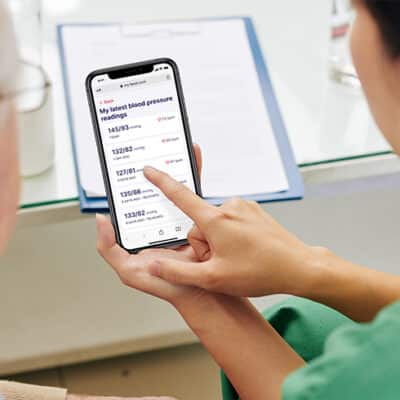Most healthcare providers agree that patients actively involved in their healthcare are more adherent to their care plans and more likely to make informed decisions about their health. Whether it’s medication compliance or simply adhering to a more active lifestyle, research has shown that patients who are engaged in their health experience better outcomes and incur lower costs.
Patient engagement not only keeps patients healthier but also helps build loyalty, which enables healthcare organizations and providers to reduce risk and meet quality measures. As a result, many healthcare organizations are prioritizing engagement strategies that leverage artificial intelligence (AI) to support more personalized and proactive care while empowering patients to take an active role in managing their health.
One example of this is through the use of AI virtual health assistants, such as chatbots and voice assistants. This intelligent technology is making a significant impact on patient engagement. Designed to provide a more personalized, convenient, and proactive care experience, AI virtual health assistants, such as Esper, can deliver patient outreach on behalf of medical practices and health plans through phone and SMS text communications.
For patients, AI virtual health assistants can offer 24/7 support, answer questions, deliver health information and surveys, and provide alert reminders for medications and daily vitals collections to ensure patients adhere to their care plans. For providers, AI virtual assistants can help reduce some of the administrative burden for healthcare staff, enabling them to concentrate their efforts on the patient and providing an exceptional care experience. The technology can also help strengthen patient-provider communication and increase patient adherence, ultimately leading to better outcomes.
How AI Virtual Health Assistants Can Help Increase Patient Engagement
Deliver 24/7 Support, Accessibility and Convenience
Unlike traditional customer service representatives, one of the primary advantages of AI virtual health assistants is their ability to provide around-the-clock support to patients. This accessibility enhances patient engagement and increases satisfaction by reducing wait times and providing immediate responses to inquiries. In addition, the convenience of having access to support anytime helps provide peace of mind.
Enhance Patient-Provider Communication
AI virtual health assistants also help streamline communication between patients, healthcare providers, and care teams. These virtual assistants can help field inquiries, send reminders to patients to take their readings and deliver health assessments and surveys. Automating these administrative tasks frees up valuable time and enables clinicians and staff to focus on providing high-quality care. This smart technology automates simpler tasks, leaving staff to handle more complex situations. This streamlined communication and coordination improves patient engagement and enhances the overall patient experience.
Support More Personalized Care Experiences
Another advantage of AI virtual health assistants is the ability to deliver a more personalized care experience. Whether it’s reminding patients to take their readings, offering encouragement for meeting their health goals or providing educational resources, this technology helps empower patients to take a more active role in managing their health. This personalized approach enhances patient satisfaction and helps increase adherence to care plans. In fact, internal data for Esper has shown that patients who receive these reminders take more than 35% more readings than patients who do not receive automated messages.
Lastly, as healthcare organizations and providers continue to embrace digital innovation to help drive patient engagement, AI-virtual health assistants play a critical role in helping to deliver a more personalized care experience and empower patients to become more active participants in their healthcare.
Start The Path Toward Better Patient Care
Have questions about how remote patient monitoring for healthcare will work for you and your patients? Let’s have a conversation.
Access the Latest RPM News
Stay up to date with the latest news, articles and webinars about remote patient monitoring and telehealth.
"*" indicates required fields



